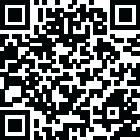
Latest Version
Version
2.0.7
2.0.7
Update
June 28, 2025
June 28, 2025
Developer
i6 Games
i6 Games
Categories
Entertainment
Entertainment
Platforms
Android
Android
Downloads
0
0
License
Free
Free
Package Name
com.veravoice.parodistapp
com.veravoice.parodistapp
Report
Report a Problem
Report a Problem
More About Parodist - celebrity voices APK Download for android
Parodist - an application with the voices of over 40 famous artists, personalities, and cartoon characters. Enter the first and last name of a friend or loved one, and create a personal parody message powered by text to speech technology.
The Life of a Parodist: More Than Just Jokes
You ever stop and think about what a parodist really does? Not just the laughs or the silly impressions, but the whole gig? It’s kinda wild when you break it down.
Most folks just see a parodist as that person who cracks jokes by mimicking celebrities or poking fun at popular songs. And yeah, that’s part of it. But behind all that, there’s some real craft involved. It’s not just goofing off on stage.
What exactly is a parodist?
So, a parodist is someone who creates parodies — that is, funny or satirical imitations of something. Usually music, movies, or public figures. Think Weird Al Yankovic. Dude made a career out of twisting famous songs into hilarious versions. But parodists don’t have to stick to music. They might do sketches, short videos, or even write parody scripts.
This whole idea of parody has been around forever. It’s like a mirror, but a funhouse mirror. You see the original, but it’s distorted — exaggerated or flipped upside down just enough to make you laugh or think.
Why do we love parodies?
Look, the world can get pretty heavy. Politics, social issues, personal dramas. Parody gives us a chance to step back and laugh at the chaos. A parodist can hold up that mirror and say, “Hey, isn’t this ridiculous?”
It’s kind of a way to deal with stuff. Plus, parodies are clever. They need to be. You can’t just slap funny words onto a song and expect magic. There’s timing, understanding the original, and creativity.
Secondary keywords like “satirical comedy,” “imitation artist,” or “music parody creator” all point to different sides of what a parodist does.
The grind behind the laughs
People often think being a parodist is easy. Like, you watch a video, do a few impressions, and boom, you’re a star. Nah. It’s hours of work. Listening, rewriting, practicing. Especially if you want it to land right.
You gotta nail the voice, the mannerisms, the punchlines. Sometimes it’s about playing with the original message. Other times, it’s totally flipping it on its head.
And the tricky part? Not offending people too much. Parody walks a line — poke fun, but don’t burn bridges. That balance takes skill.
The tools of the trade
These days, a parodist might have a mic, a camera, some editing software. But the core tools? Sharp wit and observation. You gotta see what’s going on around you. What’s funny, what’s absurd, what people are obsessing over.
From social media memes to trending songs, a parodist mines culture for material. And you better move fast — trends die quick.
The internet made parody blow up
Remember the days when you had to wait for Saturday Night Live or a comedy show to catch a parody? Now, anyone with a phone can be a parodist. TikTok, YouTube, Instagram — those platforms exploded the scene.
This new wave brought tons of voices, styles, and ideas. Some are spot-on impersonators, others go full goofy with absurd edits.
Of course, this means competition is fierce. Standing out as a parodist today means being original, clever, and quick on your feet.
Parody as commentary
Here’s the cool thing: parody isn’t just jokes. Sometimes it’s sharp critique wrapped in humor. Like a subtle way to call out something without being a downer.
This is where political parody shines. Think of all those comedians doing impressions of politicians, mocking speeches, or highlighting hypocrisy. It’s comedy, yes — but also social commentary.
So a parodist can have real impact, making people laugh and think.
When does parody cross the line?
Okay, not everything funny is fair game. Sometimes parody can feel mean-spirited or just plain disrespectful. There’s a thin line between satire and insult.
A good parodist learns to read the room. Know your audience, and don’t punch down. The best parodies target systems, ideas, or public figures — not private folks.
Secondary keywords like “satire boundaries,” “ethical parody,” or “comedy respect” highlight this balance.
You ever stop and think about what a parodist really does? Not just the laughs or the silly impressions, but the whole gig? It’s kinda wild when you break it down.
Most folks just see a parodist as that person who cracks jokes by mimicking celebrities or poking fun at popular songs. And yeah, that’s part of it. But behind all that, there’s some real craft involved. It’s not just goofing off on stage.
What exactly is a parodist?
So, a parodist is someone who creates parodies — that is, funny or satirical imitations of something. Usually music, movies, or public figures. Think Weird Al Yankovic. Dude made a career out of twisting famous songs into hilarious versions. But parodists don’t have to stick to music. They might do sketches, short videos, or even write parody scripts.
This whole idea of parody has been around forever. It’s like a mirror, but a funhouse mirror. You see the original, but it’s distorted — exaggerated or flipped upside down just enough to make you laugh or think.
Why do we love parodies?
Look, the world can get pretty heavy. Politics, social issues, personal dramas. Parody gives us a chance to step back and laugh at the chaos. A parodist can hold up that mirror and say, “Hey, isn’t this ridiculous?”
It’s kind of a way to deal with stuff. Plus, parodies are clever. They need to be. You can’t just slap funny words onto a song and expect magic. There’s timing, understanding the original, and creativity.
Secondary keywords like “satirical comedy,” “imitation artist,” or “music parody creator” all point to different sides of what a parodist does.
The grind behind the laughs
People often think being a parodist is easy. Like, you watch a video, do a few impressions, and boom, you’re a star. Nah. It’s hours of work. Listening, rewriting, practicing. Especially if you want it to land right.
You gotta nail the voice, the mannerisms, the punchlines. Sometimes it’s about playing with the original message. Other times, it’s totally flipping it on its head.
And the tricky part? Not offending people too much. Parody walks a line — poke fun, but don’t burn bridges. That balance takes skill.
The tools of the trade
These days, a parodist might have a mic, a camera, some editing software. But the core tools? Sharp wit and observation. You gotta see what’s going on around you. What’s funny, what’s absurd, what people are obsessing over.
From social media memes to trending songs, a parodist mines culture for material. And you better move fast — trends die quick.
The internet made parody blow up
Remember the days when you had to wait for Saturday Night Live or a comedy show to catch a parody? Now, anyone with a phone can be a parodist. TikTok, YouTube, Instagram — those platforms exploded the scene.
This new wave brought tons of voices, styles, and ideas. Some are spot-on impersonators, others go full goofy with absurd edits.
Of course, this means competition is fierce. Standing out as a parodist today means being original, clever, and quick on your feet.
Parody as commentary
Here’s the cool thing: parody isn’t just jokes. Sometimes it’s sharp critique wrapped in humor. Like a subtle way to call out something without being a downer.
This is where political parody shines. Think of all those comedians doing impressions of politicians, mocking speeches, or highlighting hypocrisy. It’s comedy, yes — but also social commentary.
So a parodist can have real impact, making people laugh and think.
When does parody cross the line?
Okay, not everything funny is fair game. Sometimes parody can feel mean-spirited or just plain disrespectful. There’s a thin line between satire and insult.
A good parodist learns to read the room. Know your audience, and don’t punch down. The best parodies target systems, ideas, or public figures — not private folks.
Secondary keywords like “satire boundaries,” “ethical parody,” or “comedy respect” highlight this balance.
Rate the App
Add Comment & Review
User Reviews
Based on 0 reviews
No reviews added yet.
Comments will not be approved to be posted if they are SPAM, abusive, off-topic, use profanity, contain a personal attack, or promote hate of any kind.
More »










Popular Apps

MessengerMeta Platforms, Inc.

Road to Valor: EmpiresDreamotion Inc.

WhatsApp MessengerWhatsApp LLC

Call of Duty Mobile Season 8Activision Publishing, Inc.

Video downloader - Story SaverETM Video Downloader

WhatsApp MessengerWhatsApp LLC

PUBG MOBILELevel Infinite

Conflict of Nations: WW3 GameDorado Games / DOG Productions Ltd

AoD Vikings: Valhalla GameRoboBot Studio

Viking Clan: RagnarokKano Games
More »










Editor's Choice

Moj BH Telecom APK Download for androidBH Telecom d.d. Sarajevo

WhatsApp MessengerWhatsApp LLC

Grim Soul: Dark Survival RPGBrickworks Games Ltd

Craft of Survival - Gladiators101XP LIMITED

Last Shelter: SurvivalLong Tech Network Limited

Dawn of Zombies: Survival GameRoyal Ark

Merge Survival : WastelandStickyHands Inc.

AoD Vikings: Valhalla GameRoboBot Studio

Viking Clan: RagnarokKano Games

Vikings: War of ClansPlarium LLC





















